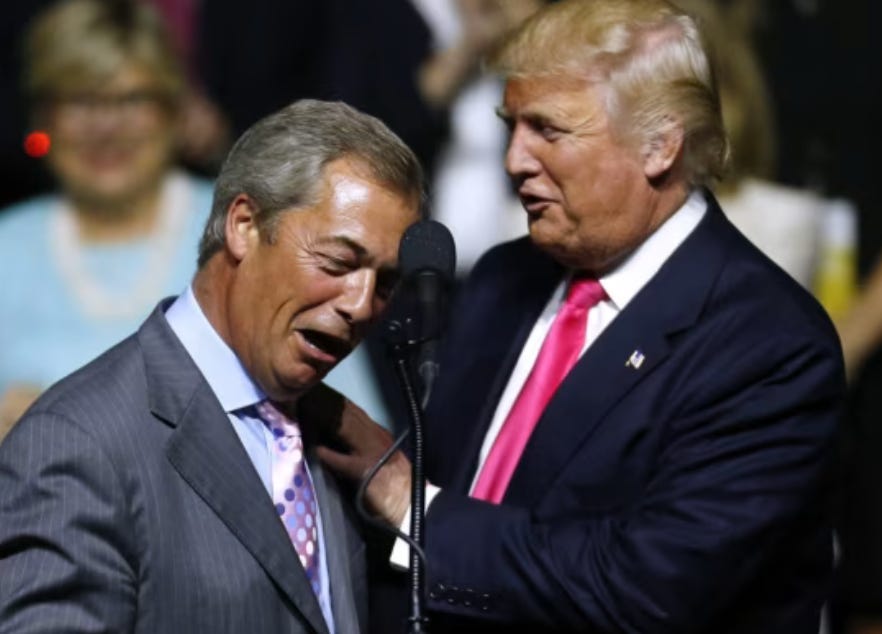Farage's MAGA Moment
How Trump's Toxic Tactics Are Poisoning UK Politics

Nigel Farage, the political chameleon who has never met a populist bandwagon he didn't want to ride, is at it again. This time, he’s cribbing shamelessly f…


Nigel Farage, the political chameleon who has never met a populist bandwagon he didn't want to ride, is at it again. This time, he’s cribbing shamelessly f…
